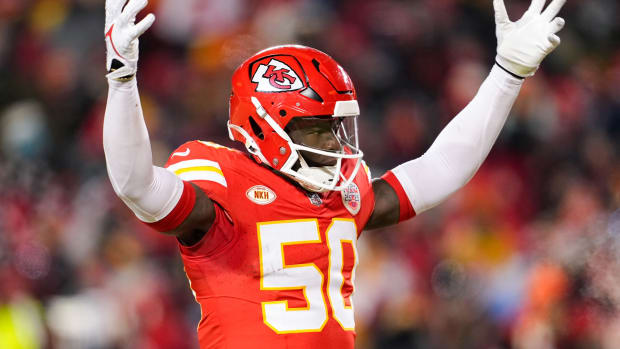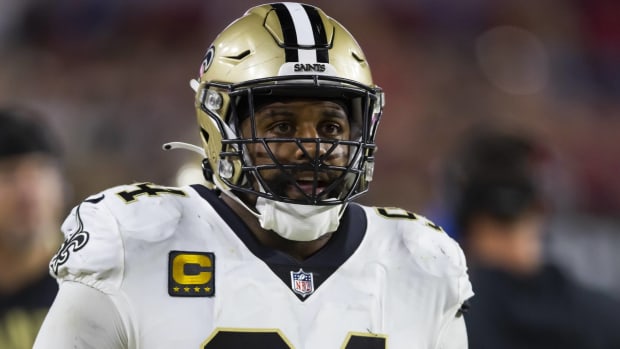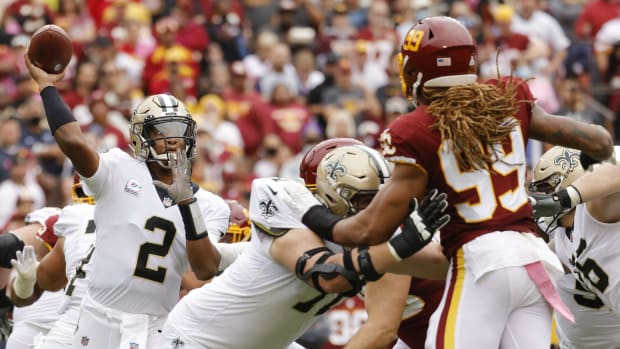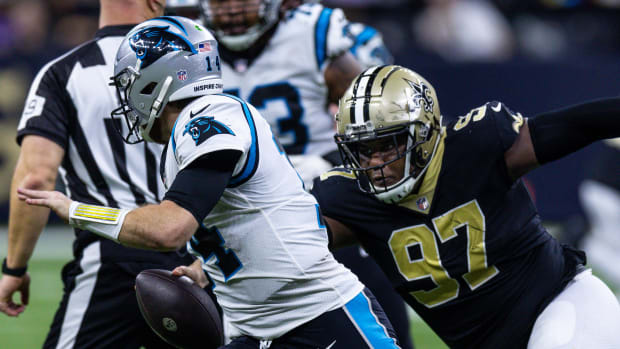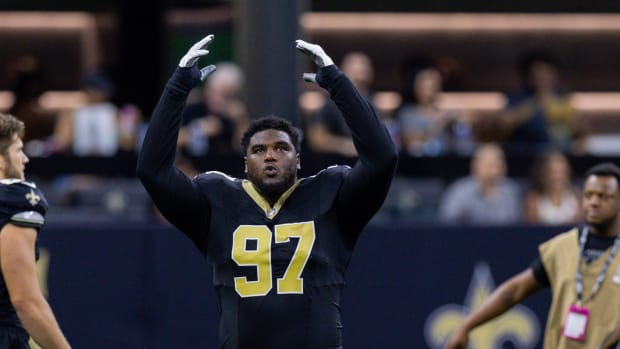A Look Back in Time: The 2001 Saints
Twenty years ago this summer, the New Orleans Saints were preparing for their 35th NFL season. Expectations were high entering training camp, with the Saints coming off their most surprising finish in franchise history.
The 2000 Saints bounced back from an abysmal 3-13 finish the year before, going 10-6 and capturing the NFC West championship. It was just the second division title in the team's history.
They culminated the year with the first postseason victory in franchise history, a 31-24 Wild-card win over the defending Super Bowl champion St. Louis Rams.
Quarterback Aaron Brooks and Pro Bowl WR Joe Horn led an explosive offense that only looked stronger with the first-round draft selection of running back Deuce McAllister.
Defensive tackle La'Roi Glover and DE Joe Johnson powered a deep defensive line that overwhelmed opponents for second-year head coach Jim Haslett.
New Orleans started 2001 impressively, traveling to Buffalo and emerging with a convincing 24-9 victory. After a Week 2 bye, they’d stumble on the road against the New York Giants to even their record at 1-1.
The Saints won three of their next four contests, including avenging their Divisional Round loss to Minnesota the year before. Many believe that the season turned during a Prime Time showdown against the New York Jets in Week 8.
In a defensive battle, the Saints were driving deep in New York territory trailing 16-9. They had the ball at the Jets' six-yard line and looked ready to tie the game with just 1:14 remaining. Aaron Brooks was then the victim of a gruesome facemask penalty by New York defender Damien Robinson.
New Orleans Pro Bowl OT Kyle Turley, coming to the aid of his quarterback, jumped Robinson to create offsetting personal foul penalties. Then, inexplicably, Turley ripped off Robinson's helmet and hurled it downfield.
The resulting unsportsmanlike penalty pushed the ball back to the New York 20-yard line. New Orleans could not punch the ball into the end zone on the next three plays, sending them to an improbable defeat.. Turley's loss of composure was the microcosm of a frustrating season for the Saints.
After a Week 9 loss at San Francisco dropped their record to 4-4, the Saints rattled off three wins over their next four games. A 7-5 record had them sitting in solid playoff positioning with just a quarter of the season remaining.
New Orleans lost all four of their remaining games, including the last two by a combined 78-10 score. A season that began with promise ended with inconsistencies, defensive failures, and a 7-9 record.
The Saints had their fair share of individual success in 2001. Running back Ricky Williams rushed for a then career-high 1,245 yards. Wideout Joe Horn led the team with 83 receptions for 1,265 yards and 9 touchdowns, earning his second straight Pro Bowl berth.
A top-10 Saints offense was led by an elite pair of tackles in Turley and future Hall of Famer Willie Roaf. Brooks, though inconsistent, threw for 3,832 yards and tied a franchise record with 26 touchdown passes.
Defensively, the team ranked around the middle of the pack in yardage allowed while forcing 30 turnovers and recording 53 sacks. Glover led a fearsome defensive front, while safety Sammy Knight earned a Pro Bowl berth with 6 interceptions.
The 2001 Saints floundered because of critical lapses on both sides of the ball. They allowed nearly 26 points per game, ranking 27th in the league. They finished a minus-five in turnover differential, with their offense turning the ball over an incredible 14 times in the final three games.
As it turned out, the 2000 team was the high-water mark of the Jim Haslett era in New Orleans. Willie Roaf and Ricky Williams were traded after the 2001 season, while Glover departed for Dallas as a free agent.
Deuce McAllister stepped in for Williams and went on to finish his career as the franchise's all-time leader in rushing yardage and touchdowns. However, Brooks’ play continued to be inconsistent, and the entire team would be plagued by mental errors and undisciplined play in crucial moments.
Haslett's next three teams continued to underachieve, finishing with 9-7, 8-8, and 8-8 marks from 2002 to 2004. In 2005, the disaster of Hurricane Katrina forced the franchise to relocate and the entire team unraveled to a 3-13 finish.
Haslett was relieved after 2005 and replaced by Sean Payton in 2006. Brooks was also jettisoned in favor of Drew Brees at quarterback. The Payton-Brees era took the Saints to unprecedented levels of success.
The 2001 New Orleans Saints were a perfect reflection of Jim Haslett's entire frustrating six-year tenure with the team. A year that started off with high expectations after an unlikely 2000 playoff run, immense talent on both sides of the ball, but ending in a collapse that couldn't have been foreseen.
Follow Bob Rose on Facebook and Twitter @bobbyr2613.
Read More Saints News:
- Important Things to Remember for Saints Training Camp
- Report: Saints Expected to Sign LB Kendall Donnerson
- Report: Saints to Sign WR Chris Hogan
- Saints Countdown to NFL Kickoff 2021: #49 Zach Wood
- Saints: Chad 'Ochocinco' Johnson Tweets for a Tryout; Chris Hogan and Vet WRs Workout Monday
- Report: Saints to Try Out WR Chris Hogan
- Saints' Defensive Interior a Huge Concern Going Into 2021
- ICYMI: Saints News on Sunday, July 25



